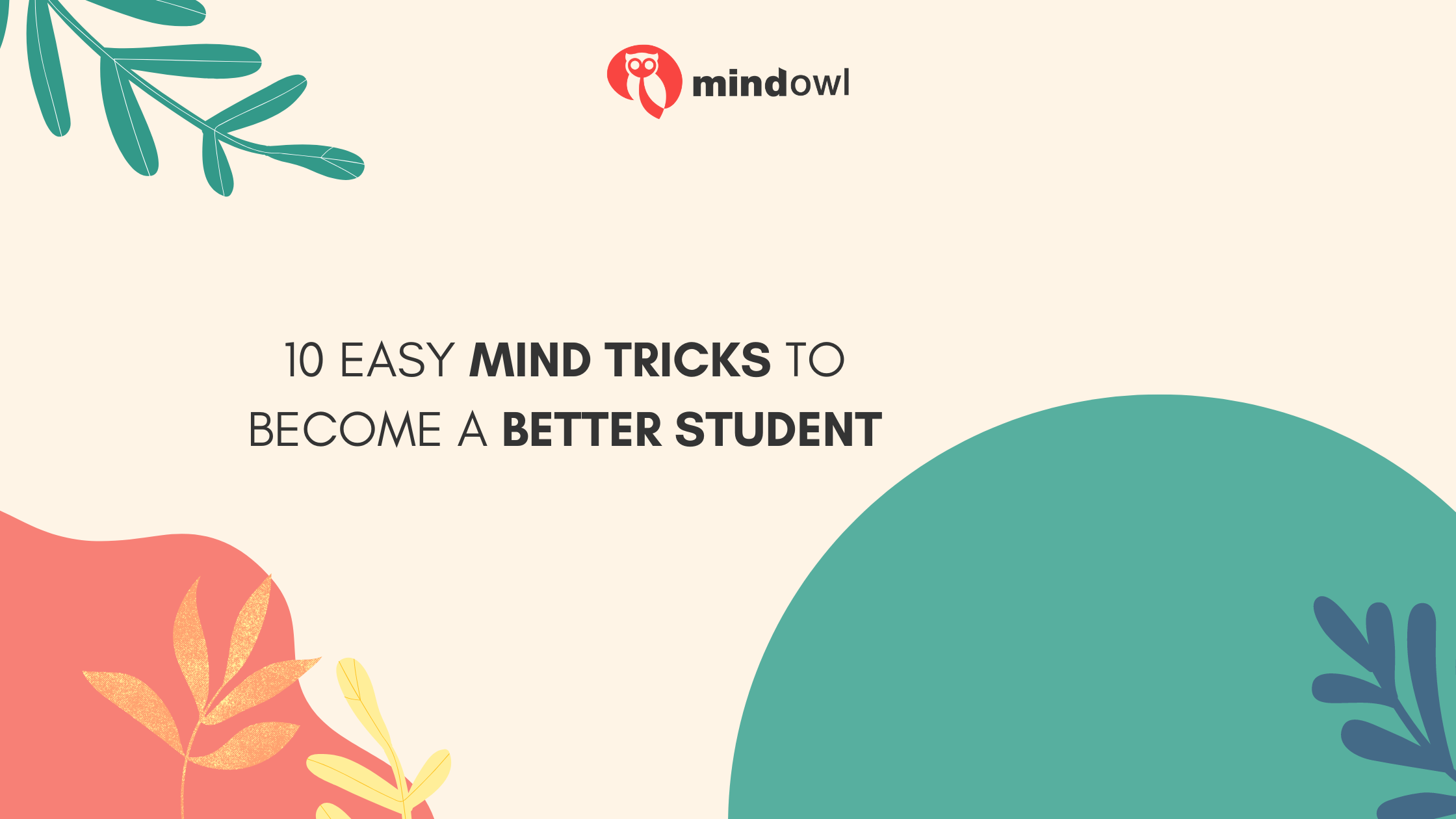Becoming a better student isn’t just about studying harder or spending more hours poring over textbooks. It’s about adopting effective strategies and optimizing your mindset to maximize your learning experience. Here are 10 mind tricks that can help you become a better student:
Set Clear Goals
One of the most effective ways to stay focused and motivated is to set clear, achievable goals. Break down your long-term objectives into smaller, manageable tasks, and create a roadmap to guide your progress. Whether taking a test, completing a project, or mastering a new skill, having specific goals will give you direction and purpose in your studies.
Practice Active Learning
Passive learning, such as simply reading or listening to lectures, often leads to limited retention and understanding. Instead, engage in active learning techniques that require you to participate actively in the learning process. This could involve summarizing material in your own words, teaching concepts to a friend, or solving problems independently. For example, you can explore case study topics for nursing students, which will improve your comprehension and retention by actively engaging with the material.
Manage Your Time Wisely
Effective time management is crucial for academic success. Create a study schedule that allocates time for both studying and relaxation and stick to it as much as possible. Prioritize tasks based on their importance and deadlines, and use techniques like the Pomodoro Technique to maintain focus and productivity during study sessions. By managing your time effectively, you’ll avoid procrastination and ensure steady progress towards your goals.

Embrace Failure as a Learning Opportunity
Failure is an inevitable part of the learning process, but how you respond to failure determines your growth as a student. Instead of viewing setbacks as obstacles, see them as opportunities for learning and improvement. Analyze your mistakes, identify areas for improvement, and adjust your approach accordingly. By embracing failure and learning from your experiences, you’ll develop resilience and become a more adaptive learner.
Cultivate a Growth Mindset
Psychologist Carol Dweck coined the term “growth mindset” to describe the belief that abilities and intelligence can be developed through dedication and effort. Adopting a growth mindset can significantly enhance your academic performance by encouraging you to view challenges as opportunities for growth rather than threats to your abilities. Cultivate a positive attitude towards learning, embrace challenges, and focus on continuous improvement to unleash your potential as a student.
Stay Organized
A cluttered workspace can lead to a cluttered mind, making it difficult to focus and retain information. Keep your study area clean and organized, and develop systems for managing your notes, assignments, and study materials. Use tools like planners, calendars, or digital apps to keep track of deadlines and important dates. Maintaining an organized environment reduces distractions and creates a conducive space for effective studying.
Practice Mindfulness
Mindfulness involves being fully present and engaged in the moment without judgment or distraction. Incorporating mindfulness practices into your daily routine can help reduce stress, improve concentration, and enhance your overall well-being. Take short breaks during study sessions to practice deep breathing, meditation, or simple stretching exercises. By cultivating mindfulness, you’ll sharpen your focus and enhance your ability to absorb and retain information.
Seek Feedback and Support
Don’t be afraid to seek feedback from teachers, peers, or tutors to identify areas for improvement and gain valuable insights into your performance. Actively participate in class discussions, ask questions when you’re uncertain, and seek clarification on concepts you find challenging. Additionally, form study groups or seek out classmates who can provide support and encouragement. Collaborating with others can deepen your understanding of the material and offer new perspectives on complex topics.
Take Care of Your Physical and Mental Health
Your well-being has a significant impact on your academic performance. Prioritize self-care by getting enough sleep, eating nutritious meals, and exercising regularly. Make time for hobbies and activities you enjoy to prevent burnout and maintain a healthy work-life balance. If you’re struggling with stress, anxiety, or other mental health issues, don’t hesitate to seek support from counseling services or mental health professionals. Taking care of your physical and mental health will enhance your resilience and enable you to perform at your best academically.
Celebrate Your Achievements
Finally, don’t forget to celebrate your successes, no matter how small they may seem. Whether mastering a difficult concept, completing a challenging assignment, or achieving a personal goal, take the time to acknowledge and reward your efforts. Celebrating your achievements boosts your confidence and motivation and reinforces positive behaviors and habits. You’ll stay inspired and committed to your academic journey by recognizing your progress and accomplishments.
Conclusion
To sum it up, becoming a better student requires more than just studying harder—it requires adopting effective strategies and cultivating a positive mindset. Implementing these 10 mind tricks into your academic routine will enhance your learning experience, boost your performance, and unlock your full potential as a student. Remember, success is not just about reaching your destination—it’s about enjoying the journey and growing along the way.
MindOwl Founder – My own struggles in life have led me to this path of understanding the human condition. I graduated with a bachelor’s degree in philosophy before completing a master’s degree in psychology at Regent’s University London. I then completed a postgraduate diploma in philosophical counselling before being trained in ACT (Acceptance and commitment therapy).
I’ve spent the last eight years studying the encounter of meditative practices with modern psychology.

